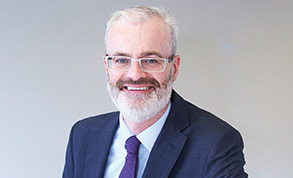Health leaders question PM candidates’ policies
 Frontrunner Liz Truss has yet to make a detailed announcement on her NHS policies, but she has said she is ‘completely committed’ to the current government health service spending pledges. However, there are questions over how she plans to fund the promised additional spending, particularly as she has said she will reverse the increase in national insurance. This was introduced by Boris Johnson’s government to pay for additional NHS spending.
Frontrunner Liz Truss has yet to make a detailed announcement on her NHS policies, but she has said she is ‘completely committed’ to the current government health service spending pledges. However, there are questions over how she plans to fund the promised additional spending, particularly as she has said she will reverse the increase in national insurance. This was introduced by Boris Johnson’s government to pay for additional NHS spending.
Former chancellor Rishi Sunak, who introduced the national insurance hike, said he would put the service on a ‘war footing’. Drawing on the experience of Covid vaccine implementation, he intends to create a taskforce to address patient waiting times. This would oversee efforts to eliminate waits of more than 12 months by September 2024 – six months sooner than the current plan. Diagnostic capacity would be expanded, and empty shops could be used as short-term clinics.
Danny Mortimer (pictured), deputy chief executive of the NHS Confederation, said Mr Sunak was right to recognise the need to tackle backlogs. ‘NHS leaders will agree with his visions of a health service that improves and hastens the prevention and treatment of illnesses through measures such as expanding diagnostic hubs, much of which is in place already.
‘But Mr Sunak’s plan cannot honestly be described as putting the NHS on a war footing, and realism is desperately needed,’ he added. He had not addressed the issues of workforce, a crumbling estate, and the impact of the crisis in social care, Mr Mortimer continued.
‘If either of the Tory leadership candidates truly intend to improve the care patients have every right to expect, they must commit to giving the NHS the capital investment it desperately needs.
‘Both candidates must commit to a fully funded plan for expanding the number of health and social care staff and be honest about how long it will take to find and educate these desperately needed people.’
The former chancellor has also proposed to fine patients £10 for each missed GP or hospital appointment. But confederation policy director Layla McCay cast doubt on the cost-effectiveness of the suggested fines. ‘The administrative burden this would place on the NHS risks being considerable and could well far outweigh the money brought in by the fines,’ she said.
‘It is important to recognise that the reasons patients do not or cannot attend their appointments will be complex. Penalising them unfairly will not solve the problem and working with local communities to address the root causes is essential.’
At the beginning of the week Ms Truss proposed creating regional pay boards to set civil service pay so that ‘pay accurately reflects where civil servants work’. The announcement suggested savings of up to £8.8bn, however this figure was based on changing the pay of all public sector workers.
The proposals would have started with civil servants before moving on to the wider public sector including the NHS. It appears that regional pay boards would have replaced the national NHS pay review bodies, with pay in future set to reflect the local cost of living in different areas.
However, facing major criticism from within her own party and from opposition MPs and commentators, the Conservative leadership contender performed a rapid u-turn on the policy. She claimed it had been ‘wilfully misrepresented’ in the media and that ‘current levels of public sector pay will absolutely be maintained’. And she confirmed that the regional pay proposal would not be taken forward.
Related content
We are excited to bring you a fun packed Eastern Branch Conference in 2025 over three days.
This event is for those that will benefit from an overview of costing in the NHS or those new to costing and will cover why we cost and the processes.